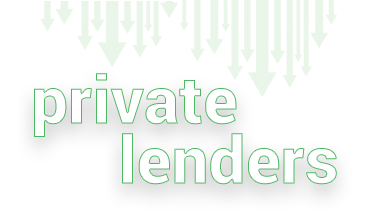Get Pre-Approved Now
Understanding bad credit mortgages in Canada and what they can mean for you
You probably know more about bad credit mortgages than you realize. Take the basic definition. By the name alone, you know this type of financing is designed for those with bad credit. That bad credit may take the form of being slightly below what many lenders consider minimum credit scores. It could be credit that’s sustained major damage due to bankruptcies or other financial reversals. What you may not realize is that this category can also include those who for various reasons have little to no established credit at present.
It’s no secret that policy changes in the last couple of years have made it more difficult to obtain financing from traditional banks and other lenders who were once able to accommodate applicants with some obvious credit issues. The result is that many Canadians are finding it harder to find lenders who’re willing to work with them and extend credit. Those with lower scores shouldn’t feel alone. In today’s climate, even those who have higher incomes and credit scores that are generally considered good to excellent may run into a few obstacles.
Apply Online
Wherever you may be along this broad scale, turning to lenders who offer bad credit mortgages can be the solution.
Where does one turn for bad credit mortgages in Canada? Alternative lenders are often a good source. There are also other channels that can help applicants connect with lenders who will be willing to talk with them. For anyone who thought that their credit was decent but found themselves show to the door by traditional lenders, becoming aware of this other cache of lenders can be like a breath of fresh air.
How do people get to this point?
Quite a few factors can contribute to the gradual erosion of credit scores. Some of them can bring about changes suddenly. Others chip away at scores over a period of time. Outside of experiencing some sort of financially devastating circumstances, most people fall into the latter category.
What could lead you down this path and motivate traditional lenders to back away? Being consistently late on the payments for an existing mortgage is one factor. Taxes can be another. If you owe money from past years, that can damage your credit. Missing payments on your obligations, like car loans, credit cards, department store charge accounts, or any other type of debt will also negatively impact your score.
The amount you owe on revolving accounts also plays a role. A good rule of thumb is to keep your usage of those credit loans lower. High balances from month to month, even if you make the minimum payment on time, can lead to losing a few points on your score. Bankruptcies or consumer proposals that took place in the last 7 years will also do a number of your credit scores. A change in your income – meaning that it decreases for some reason – will also alter your income to debt ratio in a way that leaves you with a lower score.
These and other credit-affecting issues combine to mean that it will be harder to find a lender who is willing to take a chance on you. Even if you do manage to squeak by and find a traditional lender who is willing to approve the application, the rates and terms you receive may not be all that great.
Turning to an Alternative Lender
One look at the news is all it takes to confirm that banks and other traditional lenders are operating in an era of change. Simply put, policies and procedures that were in place as recently as a decade ago are either history or have been altered significant. The result is that those with less than ideal credit often do well to seek out alternative lenders and see what they have to offer.
What are your choices on this front? You may hear of some alternative lenders that are called B lenders. There are also mortgage providers who refer to themselves as private mortgage lenders. In both cases, they are not necessarily bound by all of the regulations and restrictions that apply to the more traditional lenders like banks.

We know these types of lenders well. That’s because we work with them in a number of different areas around the country. Those areas include metropolitan areas like the GTA, Oshawa, Ottawa and other major cities. Smaller cities and towns are not left out of the mix. We have connections with private and B lenders who offer financing to those who live in places like Barrie, London, and similar locales.

The lenders we work with focus their business model on working with people who don’t have the best credit or have income that happens to be a little lower than the traditional banks like. The same is true for those who have self-declared income, or depend on income from sources other than employment with an established business. Part of what we offer to you is an evaluation of your situation and then matching you with lenders who offer the best in lower interest rates and better terms given that particular combination of circumstances.
Why do we do this?
We understand that people can make financial decisions that turn out to not be the best. We also understand that circumstances can arise that are beyond your control and happen to cause serious damage to your credit ratings and scores. Not everyone has the resources to withstand financial blows and it may be a long hard road to getting back to financial stability. When and as possible, we seek to help with that journey.
As you have learned, receiving mortgage financing when your financial past includes some bobbles is not easy. Banks and others that would have welcomed your business in years past won’t touch you now. By contrast, we are willing to talk with you and see what can be done.
We understand that a good mortgage broker is invested in helping clients in any way possible. Since we have connections with such a wide range of lenders, it puts us in a position to pair clients with the right lenders. That includes those who are seeking mortgages to purchase their first homes or homeowners who are hoping to refinance existing mortgages and better their present financial situations.

Our team of experienced and professional mortgage brokers support our clients in their aspirations to move past what happened before and build a sound financial future. We recognise that just because your credit scores are low or you’ve had to use your credit cards in the past to keep your head above water, it doesn’t mean you’re a bad person or one who is not worthy of receiving a mortgage loan.
In like manner, the lenders we work with also understand that bad things can happen to good people. This has led many of them to be open to approving first and even second mortgage loan applications that come with rates and terms that are affordable. You could find yourself with financing that includes short-term fixed rates that make it easier to navigate through the current rough spot and make it easier to move forward with your financial goals.
Why do we work with Alternative and Private Lenders?
The short answer is that they are in a position to provide financing that banks and other traditional lenders may or may not offer. The key is how these lenders evaluate mortgage and other kinds of lending applications.
It’s not unusual for private and alternative lenders to place less emphasis on credit histories. It isn’t that they don’t check those histories; many of these lenders do take a look. What’s different is that they tend to place more emphasis on factors like the qualities of the property you want to buy.
The general condition, market value, and location make a difference. You can understand this more when you consider that the lender is evaluating the risk associated with approving the financing. While the expectation is that you will honour the mortgage terms and pay off the debt, property that could be sold to pay off the debt with relative ease helps to reduce the risk that the lender takes on by providing the financing.
Some B and private lenders dispense with credit checks altogether. They look squarely at the property’s value, the amount you want to borrow, and the amount of income you generate each month. If you’re credit is in highly poor shape or even if you’ve recently moved to Canada and don’t have much in the way of established credit, this is a great path for you to pursue.
As part of our service to you, we provide information about private mortgages via dedicated pages on our website. You’ll quickly learn that real estate found in the more desirable areas of large cities are considered to be highly marketable and thus attractive for private lenders to finance. The same will be true with areas found in smaller cities, towns, and other localities that are considered in great areas; the odds of attracting positive attention from our lenders is quite high.
What will the lenders want from me?
Risk tolerance is a term you’re likely to hear discussed. Don’t let it intimidate you. All it happens to be is the amount of risk that the lender takes on by choosing to approve your mortgage application. By being able to comply with more of what a particular lender wants, it’s that much easier to be within what that lender considers an acceptable tolerance range.
Some lenders of this type will want to talk with you after going over the submitted application. Unlike more traditional lenders, the focus is not on questioning your past credit history. Instead, it’s more about getting a better understanding of where you are right this minute. Assuming you are well on your way to putting the past to rest and are up to date with your current financial responsibilities, there’s an excellent chance of being approved.
So how do I get approved for a mortgage
even if my credit is in poor shape?
Given the stricture nature of today’s lending guidelines, those who have had credit problems in the past are less likely to find financing options with banks and more traditional mortgage companies. The same is true for the self-employed. Even if you have great credit, the fact that you work for yourself may turn off traditional lenders or at least make it much harder to be approved. If you happen to be self-employed but have a shaky credit history, you can forget receiving a mortgage from most banks.
In other words, greater numbers of hard working Canadians are being rejected by those institutions. That includes some people who do have good or excellent credit scores. If that’s happened to you, don’t assume that you’re dream of owning a home has to be postponed. That’s not necessary true.
We can provide you with more chances to obtain the financing that you seek. It’s because the lenders we work with have qualifications that are somewhat different from the banks. Even though other lenders considered you to be too risky, what you have to offer may be squarely in line with what our lender partners want.
For this reason, don’t let a rejection from the local bank convince you that all hope is lost. There’s a good chance that one of our lenders will be happy to work with you. Once you contact us and provide the basic information, the process can get started.
Maybe a first mortgage is not what you’re seeking right now. It could be that you want to refinance that existing mortgage. Perhaps you have a decent amount of equity and want to use the money from a second or even a third mortgage to restructure existing debt into a more workable situation. Our lenders can help.
Keep in mind issues that cause traditional lenders to balk may be considered of little to no importance to our lenders. The fact that you had tax issues a few years back may not be a big deal. Paying some mortgage payments late when you were out of work two or three years back may not stop our lenders from considering your application. A debt to income ratio that’s not favourable may not be a big deal, especially if that second mortgage is to consolidate debt and alleviate some of the stress.
Of course, your credit score can have a favourable impact with some of our lenders. If you’re a freelancer or some other type of self-employed individual who happens to have great credit, do expect to be offered more competitive rates and terms. Even if you do work for someone else and your credit isn’t that wonderful, a steady flow of monthly income could mean you get approved and receive rates and terms that are within your ability to manage.
What else could help you obtain the best terms and rates from our lenders?
Your current usage of revolving account limits can be a factor. Even in today’s world, many people don’t fully grasp how their use of available credit impacts the ability to obtain mortgage approvals. A good rule of thumb is to not carry credit card balances that are more than 30% of your overall limit.
Even then, you want to pay off those balances as quickly as possible. Doing so will make you look all the more appealing to any of our lenders who do place at least a little emphasis on your credit scores.
Bad credit that developed due to past financial problems does not have to stand in your way of obtaining a mortgage. Our team is dedicated to assessing each applicant’s situation and seeking the most promising options for obtaining the financing that they desire.
The process may involve connecting you with a boutique alternative lender who can offer a short-term solution that will help improve your credit scores and offset some of those older negative line items. We can also help you develop a workable plan to get back on track so that you’re eventually able to obtain financing from traditional sources. By choosing to work through us, you have a good chance of getting what you need now while also positioning yourself for a wider range of lending opportunities in the future.
Things to avoid if you apply for a bad credit mortgage
If you’d like to maximise the odds of being approved by one of our alternative lender partners, there are some things that you can do up front. Here’s a short list of steps that may prove helpful in your case:
A larger down payment or deposit will help a lot
Remember the market value of the property you want to buy? Anything that you can do to rely less on financing to make the purchase will help. In other words, make as large a down payment or deposit as you possibly can up front.
Why does this matter? The amount you need to finance is considerably lower than the property’s market value. Thanks to this, lenders incur less risk by doing business with you. When the property costs is worth $300k and you’re able to apply a down payment or deposit of $60-90k, there’s no doubt that the lender can recoup the loss if you should default. Along with improving the odds of getting the financing, you may be able to receive slightly better rates and terms.

Prove that your monthly income allows you to manage mortgage payments
All lenders – including alternative ones – want confirmation that borrowers can repay their mortgages on time. That means providing proof that you have enough money coming in every month to make the mortgage payment. Along with meeting whatever minimum income requirement the lender has in place, it also means paying close attention to the amount of debt you carry versus the income that you generate.
Many lenders use what’s known as Gross Debt Service Ratio (GDS) and Total Debt Service Ratio (TDS) to confirm that an applicant does have the means to manage those monthly mortgage payments. In your case, it makes sense to run these ratios yourself and see how they come out. People with somewhat lower credit scores and more recent credit woes will want to keep both ratios under 30% in order to receive better terms. Couple that with a higher down payment, possibly somewhere in the range of 35%, and you have a much better chance of receiving better rates and terms.

A property appraisal by a certified professional helps too
You do want to provide some proof that the property is worth what you say it’s worth. That’s done by arranging for the property to be assessed by a professional appraiser. Most real estate companies have connections with appraisers. You’ll also find some of them take on individual clients who want properties appraised before they submit offers.
The goal is to obtain a realistic estimate of the property’s value. Lenders often require that only certain appraisers are used for this purpose. To that end, you can always check with the lender and ask for the name of an appraiser who operates in the area where the property is located.
Thanks to the completed appraisal, it’s possible for the lender to project what’s known as the Loan to Value Ratio (LTV). This type of ratio is determined by comparing the appraised value to the amount that you want to borrow.
Lenders decide what kind of LTV is acceptable for them. Most will likely be happy with a ratio of somewhere between 80 to 85%. You may find a few who are willing to work with you if the ratio is as high as 90%. Keep in mind that a higher down payment lowers the amount that you need to borrow and will result in a more favourable LTV.

Consider the idea of getting a reliable co-signer
While you may not have the best credit or your income may be on the lower side, there are ways to increase the odds of being approved if you have a co-signer. This is someone who pledges their support for the duration of the mortgage term. In the event that you default on the loan, the lender can approach the co-signer about catching up the payments or otherwise settling the outstanding amount.
Who can be a co-signer? Anyone that you like. Generally, it may be a family member who knows you well and is willing to sign with you. A friend can also serve in this capacity. It’s not unheard of for some employers or other business associates to be willing to co-sign on mortgages.
What qualities does the co-signer need to possess? The first is being willing to help you in this manner. A second one that is very important is that the person must have credit that’s significantly better than yours. The latter quality goes a long way toward helping the lender feel more confident in approving your mortgage application.
The value of having a co-signer is found in two specific attributes. First, a co-signer with great credit helps to reduce the risk that the lender assumes by extending the mortgage to you. There’s one more possible way to settle the balance if you end up unable to do so.
The second has to do with what you stand to gain by having a co-signer. Given the person’s superior credit, the lender may be willing to extend more competitive rates and terms to you. That in turn will mean you pay less in interest over the life of the loan and may be able to settle the mortgage sooner rather than later.

Consider the strategy of cross collateralization
Maybe you’re not in a position to provide a larger down payment. The result is that the Loan to Value ratio for you is less appealing to lenders, including those who offer bad credit lending solutions. One way to resolve this issue is to look into what’s known as cross collateralization.
This works by adding another property or other acceptable collateral to the mortgage loan arrangement.
The second property or asset does not have to belong to you, although it’s possible to use something you own outright along with the property you plan on buying. The combined market value of the two assets increases the value associated with the deal. In other words, the market value of the assets held as part of the arrangement are worth considerably more than the amount you borrow. That lessens the amount of risk that the lender takes on by approving your application.
It’s true that being approved for a mortgage when your credit isn’t great can be a challenge. The thing to concentrate on is the fact that there are lenders who offer bad credit mortgages in Canada that are designed to do more than allow you to buy real estate. When used prudently, they can go a long way toward bettering your financial position and improving your credit scores.

Turn to a mortgage broker or agent when you have questions
You don’t have to be a financial expert in order to weigh the options for a bad credit mortgage in Canada. What you can do is turn to a mortgage broker or agent and ask for help. The financial professionals are trained to offer objective and thorough advice about bad credit mortgages and what they can do to help you.
With their aid, you can learn more about what to do to improve your chances of receiving a mortgage offer. You’ll also get facts about how the lending process works, what your responsibilities happen to be, and even how to project the amount you will pay over the life of a particular offer. If you can think of the question, these professionals are likely to have an answer ready.

Things to avoid if you apply for a bad credit mortgage
As with any type of financial lending, there are things you want to do in order to improve the odds of obtaining what you seek. At the same time, you do want to avoid certain actions that could end up backfiring and decreasing the odds for approval. Here are a few points to keep in mind as you go through the mortgage application process.
Be completely honest with the information that you provide
Nothing is gained by trying to sugarcoat or leave out information that the lender requires. In fact, you stand to lose quite a bit. Lenders do tend to confirm everything found on an application. While a lender may understand if you accidentally omit something, most are not likely to look upon you with favour if the omission is obviously premeditated. If you’re not sure something should be included, ask the agent and follow the advice that results.
Provide what’s needed but no more
There is such a thing as too much information. In the case of seeking a mortgage, choosing to hand over data that is not requested could cause problems. The best approach is to look at what the lender requires, make sure you provide all the documents related to those basic requirements, and not inundate the lender with information that was not requested and likely not relevant to the application process.
Keep in mind that there may be some variance between different lenders when it comes to documentation. In other words, all the documents you supplied to the bank that ultimately rejected your application may not be needed by the alternative lender. Work closely with the agent so you understand exactly what’s requested. Provide all of the requested information without fail. Remember that if the lender wants to look at anything else later on, the agent will contact you and make a specific request.
Photocopies are fine and often preferred
The document requests may be hard copies or electronic ones. If it’s the former, know that photocopies are fine and often preferred. They provide the lender with all of the data requested and there’s no need to return the originals to you. Scanning your hard copies into pdfs and then printing those copies will do nicely if you don’t have access to a copy machine. When the lender is happy with electronic copies, many will prefer the pdf format anyway. You can store those in the cloud or on a hard drive with ease. Should you need them in the future, they will always be accessible.
Exploring the pros and cons associated with bad credit mortgages
You already know that bad credit mortgages are likely to come with higher interest rates. Even so, there are compelling reasons to consider this type of financing. Here are some of the benefits as well as other potential drawbacks to this form of financing:
Benefits associated with bad credit mortgages
Fast turnaround on responses:
You already know that having an application considered by a bank or what’s known as other A lenders can take time. In the interim, you could find yourself doing a lot of nail biting. By the time you get an answer, your nerves may be shot.
When the answer is no, you feel even worse. By contrast, alternative bad credit lenders or B lenders tend to move the application process along at a faster pace. That’s because the requirements are streamlined and the documents that must be reviewed are often simpler and less complex. You find out quicker if you’re approved. Even then, the agent can turn around and seek financing for you from a private lender with relatively little time passing. In some cases, you may have an answer in as little as two business days.
A credit check may not be required:
Depending on how bad your credit happens to be, an agent may seek out lenders who don’t require credit checks at all. If that’s not possible, you may be able to work with a lender who places minimum emphasis on credit scores. This may primarily be private lenders. As long as you meet the other criteria, your application has a good chance of being approved.
The right financing can help you repair damaged credit:
There are bad credit lenders who report to the major credit bureaus regularly. You want to work with one of those. Why? Those reports of your timely mortgage payments adds positive remarks to the reports. That in turn helps to offset the impact of the older negative remarks. That’s helpful for anyone, but it can be especially good for people who work for themselves. Since the self-employed have more hoops to jump through in order to obtain financing from traditional lenders, the positive remarks and the gradual improvement of your credit scores will help a lot in the future.
Potential drawbacks of a bad credit mortgage
There’s those higher interest rates:
This is one of the most obvious drawbacks with bad credit financing, including bad credit mortgages. Whether working with B lenders or private ones, you can expect to pay a higher rate of interest. The additional risk that the lenders take on in order to provide the financing is the idea behind those rates. Do keep in mind that while the rates are higher than what you would get with banks and other A lenders, they may still be fairly decent. Even if you go with a lender who doesn’t check your credit reports, there is some competition among lenders. You may end up with a loan offer with a lower rate of interest than you anticipated.
There may be additional lender and/or broker fees:
There is some variance in how these fees are handled. In some cases, you pay the fees directly. At other times, they may be bundled into the amount that your borrow. Unlike traditional banks and other A lenders in Canada, you are the one who picks up the tab for these. Always check to determine if you need to pay them up front or if they can be bundled in with the mortgage payments and paid off over time.
What can one do with the money from a bad credit mortgage?
What can be done with the money from a bad credit mortgage?
You’d be surprised. Here are some
examples:
Purchasing a home or some other type of real estate:
It can be a primary residence, a vacation home, or even a property that you will use for an investment. If it’s real estate, you can bet that it can be purchased with the money from a mortgage.
Refinancing a loan on one of your properties:
Maybe you need to put the property’s equity to use. If so, using a bad credit mortgage to refinance the debt can free up some of that equity. Even if your credit is in worse shape than when you obtained the original loan you may still find this solution is better than trying to come up with cash using some other method.
Making renovations or updates to the property:
You can definitely use the funds from the mortgage to improve the property in some way. Thanks to the home refinancing or some type of equity takeback, you have the money needed to replace HVAC systems, add rooms to the home, renovate basements and attics, update kitchens, or so anything else that you want to do.
Consolidating debts:
Many people who have experienced severe credit issues find that bad credit mortgages in Canada help them begin to reverse the trend and restore their damaged credit. When you go with the right lender, those positive reports offset older bad ones. By the time you retire the mortgage, your credit score will be in much better shape, assuming that you’ve not created more credit issues in the meantime.
Restoring your credit:
Many people who have experienced severe credit issues find that bad credit mortgages in Canada help them begin to reverse the trend and restore their damaged credit. When you go with the right lender, those positive reports offset older bad ones. By the time you retire the mortgage, your credit score will be in much better shape, assuming that you’ve not created more credit issues in the meantime.
Common questions about private mortgages
You have questions? Welcome to the club! Here are some of the most common that we hear:
Agents don’t set the amount that you can be approved for by different lenders. That’s the province of the lenders themselves. Generally speaking, you can expect many of those alternative lenders to offer up to 80% of the home’s appraised value. In some cases, the amount may be slightly higher. Keep in mind that the amount of equity you have in the property will also be taken into consideration is you’re seeking a second or third mortgage.
The answer is yes. The first consideration is alternative lenders who may have less stringent qualifications than banks or other A lenders. If those lenders aren’t suitable for some reason, there are private lenders who may be willing to consider your application. In general, agents attempt to match applicants with the most likely lenders who also happen to offer the best possible terms and conditions based on the applicant’s circumstances.
Generally, this type of lending situation is short term. It’s intended to provide a temporary means of meeting the need while your credit continues to improve. Mortgages of this type usually run for one or two years, although you may be able to land one that will offer as much as a five-year term. In any event, the goal is to be in a position to obtain longer term financing before the bad credit mortgage is settled in full.
Lenders set their own standards for processing applications. Some lenders may complete the process the same day that you submit the application. Others may need two full business days to provide a response. In the event that the mortgage application is approved, you could have an offer in two days or less. From there, it may only take a day or two for you to have the money in hand after returning all the necessary mortgage documents.
It’s not unusual for us to concentrate a lot of energy on this particular market. One reason is because it remains an underserved sector of the financing market. The fact that so many people want to become homeowners and are unable to obtain financing from traditional sources makes our work even more important and rewarding.
It’s true that location can impact the interest rates that you receive from any given lender. This is one more factor that influences the amount of risk the lender takes on by offering the financing. Properties found in more desirable locations would be easier to sell in the event of a default, meaning the risk to the lender is less. With that in mind, your property’s location in a desirable area could translate into a slightly lower interest rate.
Do you want to become a property owner but think it’s impossible right now? Call us and let’s see what can be done. Even if your credit is not the best, we have solutions that may be right for you.
